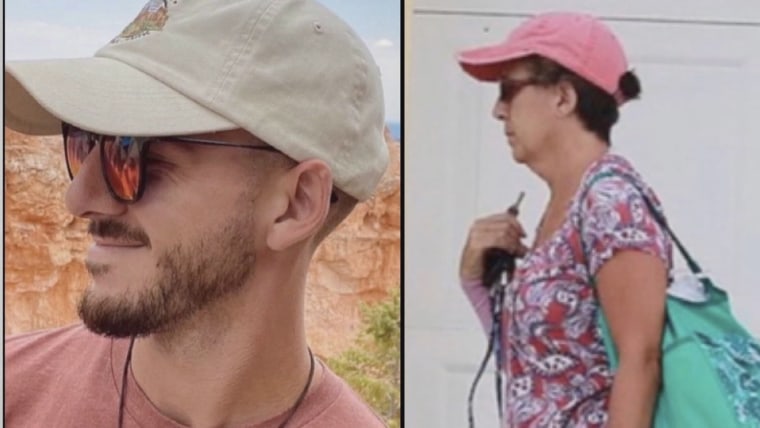The intense media coverage following Gabby Petito’s tragic death and the recent discovery of the remains of her fiancé, Brian Laundrie, have focused attention on what can only be called an ongoing epidemic of domestic violence and abuse in America. To be clear, Laundrie was never charged in Petito’s killing and was only named a person of interest in her disappearance. But the case raises important and ongoing questions about the extent of any domestic abuse Petito may have suffered and what, if anything, could have been done to prevent her death.
However Petito died, the amount of attention her case has generated is a vital opportunity.
However Petito died, the amount of attention her case has generated is a vital opportunity to talk about the need for a greater collective understanding about the warning signs of domestic abuse, which often go unnoticed. Too many people, including a potential victim’s friends and family and sometimes even those in law enforcement or public health roles, understandably miss or do not recognize the red flags.
We do know Petito’s cause of death was ruled strangulation, a crime frequently associated with domestic violence. Strangulation is a particularly insidious form of intimate partner violence, and nonfatal strangulations are often a precursor to increasingly violent forms of abuse, including death. We also know Petito and Laundrie got into a domestic dispute shortly before Petito died. But the discovery of Laundrie’s body in Florida, and the coroner’s autopsy report marking his death as “inconclusive,” means it will be incredibly difficult for Petito’s parents and friends to get answers. The police will never be able to question Laundrie about Peito’s final movements. This will hamper, if not totally derail, attempts to bring her family closure.
Justice, sadly, may be hard to come by in this case. But if there is any silver lining, it is the need for greater public focus on alleged intimate partner violence at all times — not only when it may be a factor in a high-profile story. Domestic violence cuts across boundaries of gender, race and economic status. According to the Centers for Disease Control and Prevention, more than 1 in 3 women and more than 1 in 4 men in the United States have experienced rape, physical violence, and/or stalking by an intimate partner in their lifetime. Women of color experience intimate partner violence more often than white women but may be more reluctant to report it.
There are ways to combat this. First, across the country, law enforcement — including prosecutors and first responders — must receive specialized training on how to better identify the warnings signs of domestic abuse, as we do here in Westchester County, and respond in ways that encourage victims to speak out. This is particularly true in cases where the signs are not glaringly obvious.
Prosecutors and police officers who interview a prospective victim of domestic violence should use a trauma-centered approach, in which interviewers are familiar with the signs of trauma and abuse and understand the way they may present in a victim’s account. Victims of domestic abuse may have inconsistent memory of events and gaps in their recollection should not necessarily be equated with untruthfulness. Fear, uncertainty and trauma may also impact how a victim describes their experiences and establishing trust can take time and consistency on the part of law enforcement. Proper training can make these initial interviews more productive and can put law enforcement in a better position to earn a victim’s trust.
Second, access to domestic violence services shouldn’t depend on where you live or how much money you have. While many communities have expended tremendous resources addressing intimate partner violence, there is still vast inconsistency in the availability of these services. We know that economic insecurity is a major barrier to reporting for many domestic violence victims, along with lack of access to service providers that specialize in these types of cases. According to a study conducted by the Southwest Rural Health Research Center, “rural and low-income communities are especially affected by lack of access to preventive services for [intimate partner violence], including access to regular health care and routine screening for [intimate partner violence].”
Here, prosecutors are in a key position to help. Prosecutors and police officers are often the first people to speak with a victim and a critical part of that interaction is ensuring that victims know they will be protected and supported. Importantly, this protection and support cannot end simply because a case is resolved. Our duty to keep these victims safe and protected extends broadly and law enforcement must make a commitment to continue working with and supporting victims even when our criminal case is complete or even where no arrest is made but warnings factors of danger are present.
Third, we must work to get guns out of the hands of abusers and out of houses where domestic violence is occurring. Clearly, as proved by Petito, guns are only one piece of the violence against women puzzle. But the presence of a gun in a house exponentially increases the risk of it being used in a domestic violence case. An abuser with access to a gun makes it five times more likely that a woman will be killed. In most states, prosecutors can have guns surrendered as a condition of orders of protection, and prosecutors should ensure that offenders convicted of family offenses are entered into the FBI’s National Instant Criminal Background Check System, or NICS, which verifies that a potential buyer does not have a criminal record or isn’t otherwise ineligible to purchase a gun.
Right now, 19 states and Washington, D.C., have “red flag” laws that permit courts to temporarily seize guns from anyone believed to be a danger to themselves or others. These laws enable family members and law enforcement to petition a court to temporarily remove guns from a person who has shown warning signs of violence. Keeping guns away from abusers can help keep their victims alive.
And finally, we must call on our state legislatures to enact the laws necessary to help us bring these important cases to trial. In our state of New York, we support legislation that would create a new crime of “domestic violence” in the penal code to ensure that the names of convicted domestic violence abusers are properly entered into NICS and that such abusers are prevented from accessing deadly firearms, as well as legislation enabling prosecutors to access sealed orders of protection issued in prior domestic violence cases if the offender commits a new domestic violence offense.
But the responsibility of addressing domestic violence doesn’t only rest with prosecutors, the police or the legislature. All of us should be aware of behaviors or signs that someone we know is suffering from domestic abuse, including evidence of stalking, physical abuse such as bruising or signs of strangulation, and changes in emotional or mental health. Relationships strained by financial difficulties, jealousy, controlling behavior and attempts to leave can also be warning signs to anyone who knows a person being abused. Community education about domestic violence can help reduce the stigma associated with being a victim and will encourage greater reporting.
This weekend marks the last few days of Domestic Violence Awareness Month. Let’s work together to make sure domestic violence stops being a silent crime. We don’t know who killed Petito, but clearly she died a violent death. Her family deserves justice — and so do thousands of others.
Source: | This article originally belongs to Nbcnews.com












